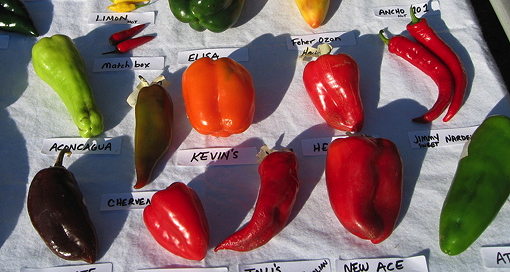Seed Quality

Seeds differ from most other commodities in at least three fundamental ways. First, they are alive, they respire and their vitality is always in flux. Second, bad craftsmanship in the seed business often does not manifest immediately. The off-types in the Genovese basil seed that was sent to us one year could not be detected from the seeds, only from the plants they produced. Third, reparations can be made only after discovery of the problem, usually too late to replant the crop in the same season, making the real loss far more than the cost of the seed. For these reasons, quality control is especially important in our business.
We are committed to sending the best seed we can at the most reasonable prices possible. To ensure quality we:
- Maintain strict internal procedures to reduce the probability of labeling errors to as close to zero as is humanly possible.
- Maintain extensive variety trials in which we evaluate hundreds of cultivars at multiple sites, field-testing all potential offerings for high performance in our cold climate.
- Maintain a lot grow-out program field-testing lots of some varieties we sell, making observations and taking action to improve quality where needed.
- Conduct trials of the same varieties from several sources so that we can identify and purchase superior strains.
- Identify outstanding regional specialties and heirloom varieties rarely available from commercial channels, select the best for seed multiplication, and grow seed crops for introduction in our catalog.
- Collaborate with artisanal breeders to improve old varieties and help create new ones resistant to disease and adapted to sustainable agriculture.
- Purchase quality hybrids grown in optimum climatic conditions by expert seedspeople all over the world.
Our research has increased our awareness of potential problems and helped us to take preventive measures. We remain committed to openly sharing the information we learn. We think you want to know when the problem is with the seed instead of its culture.
